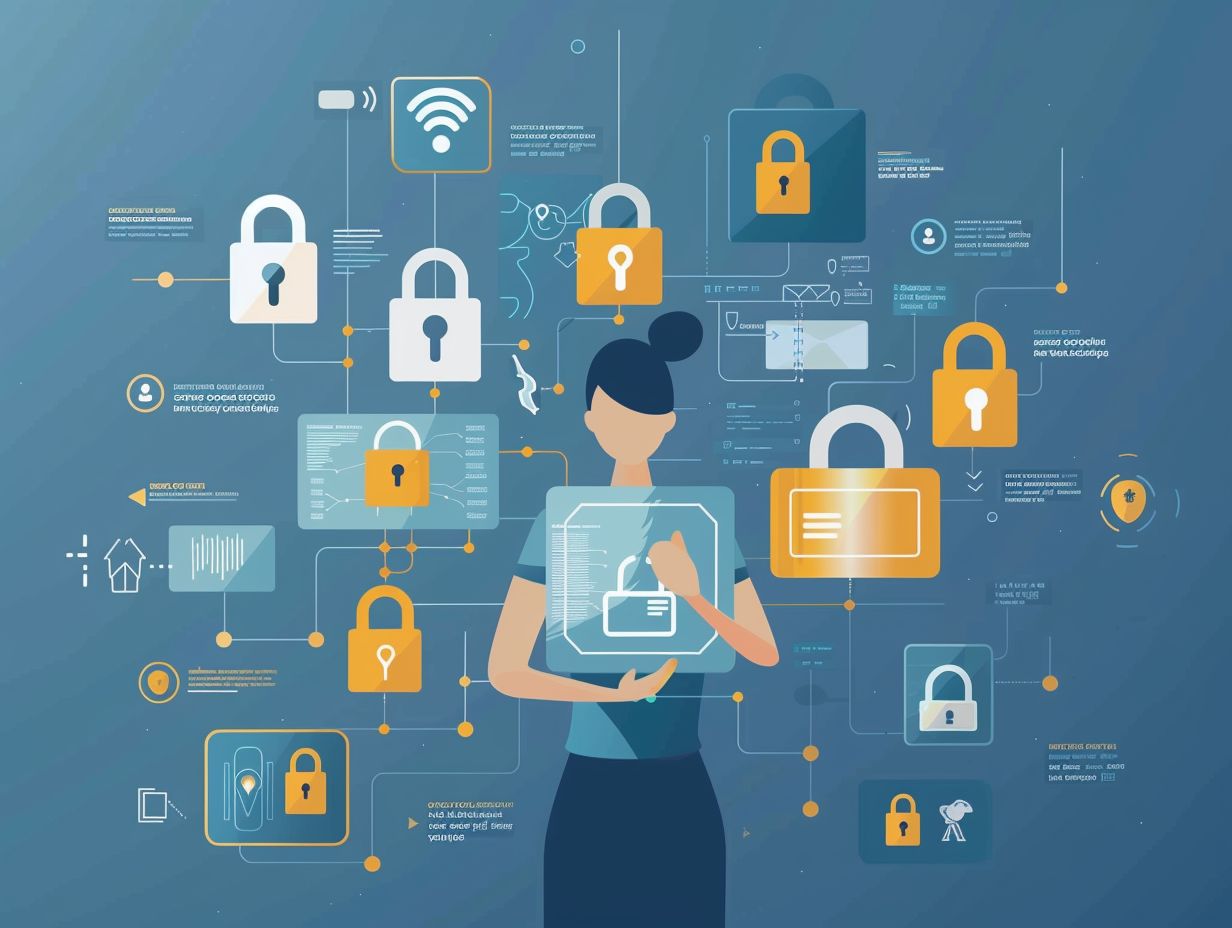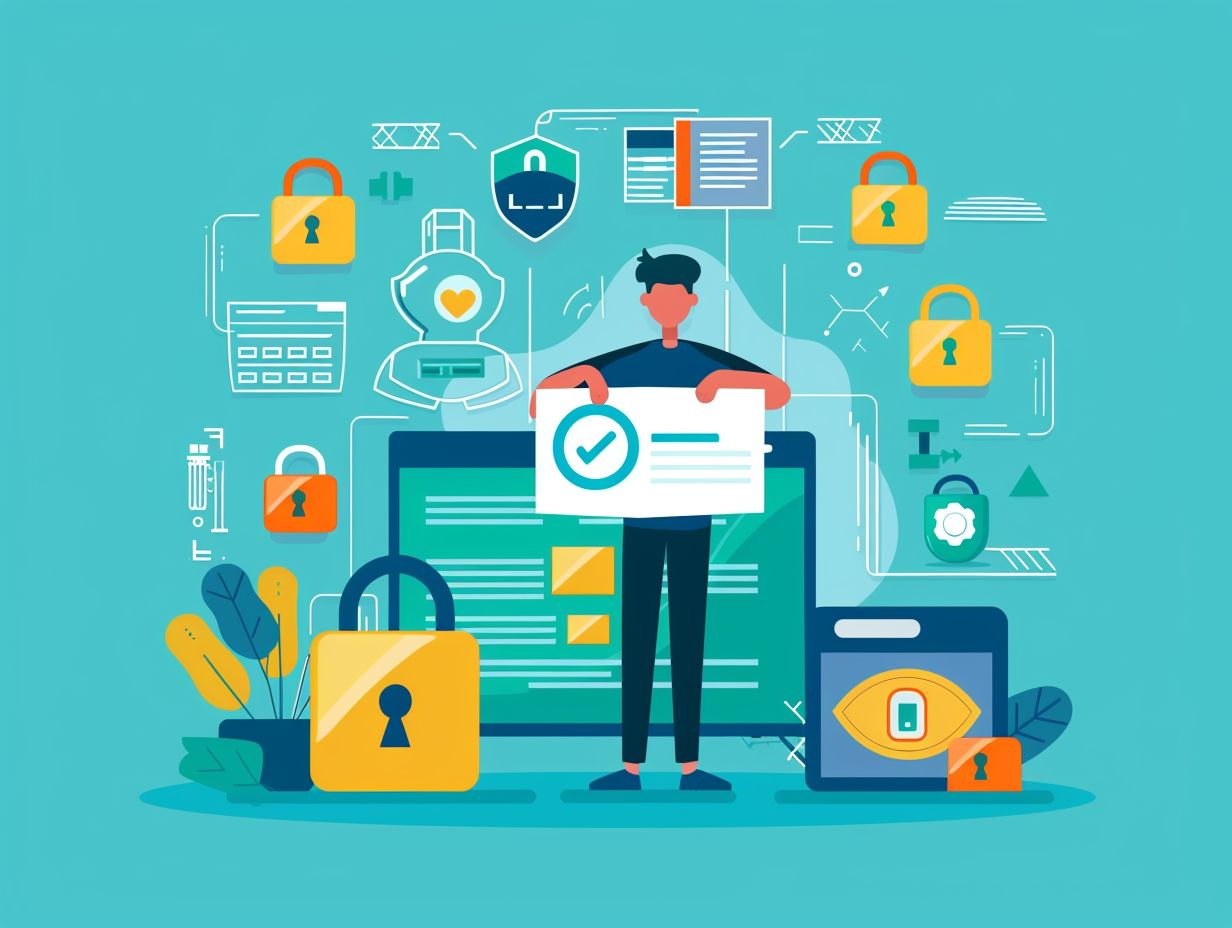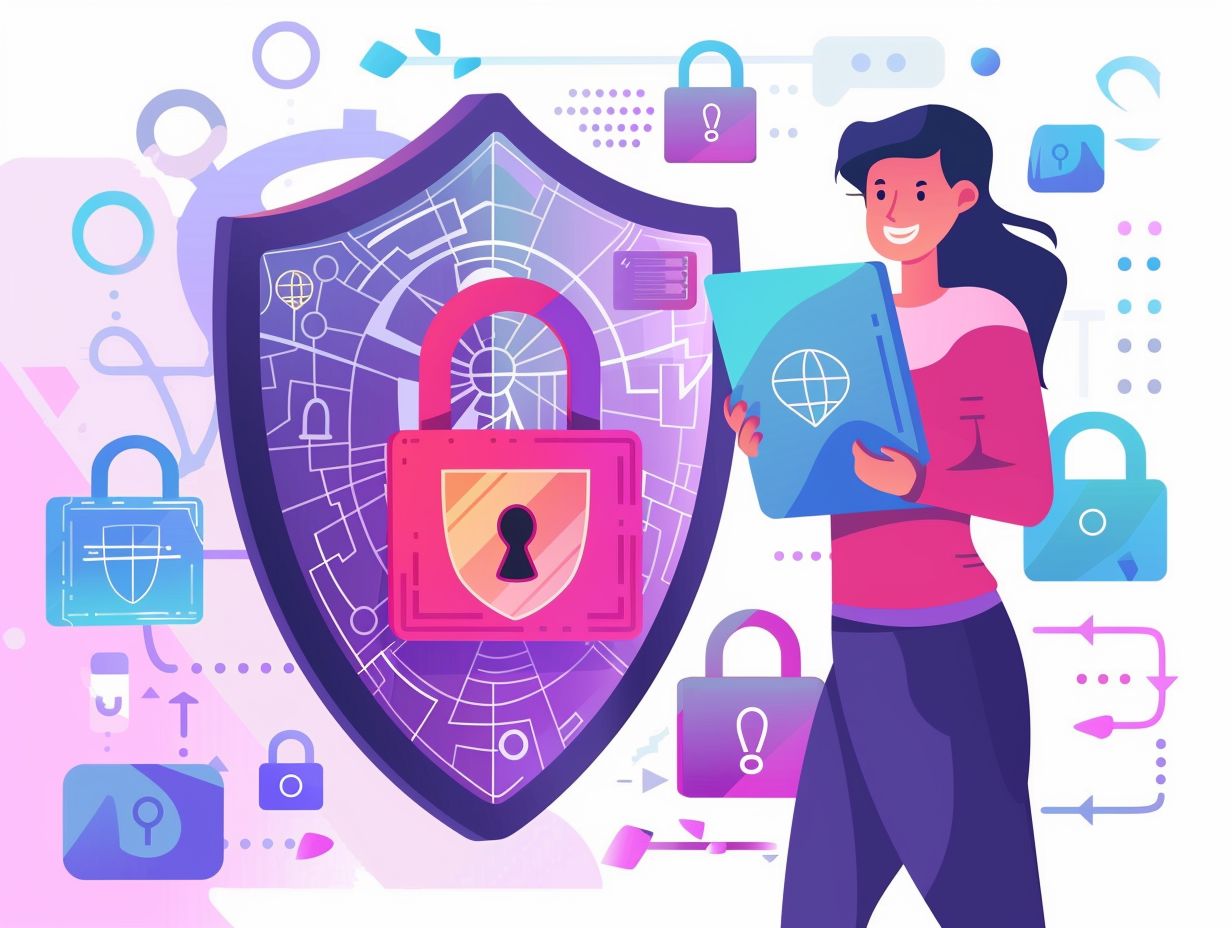If you are considering pursuing CompTIA’s Security+ Certification but are unsure where to start, this article will offer you all the essential information you need to know about this valuable certification. From understanding the importance of Security+ Certification for both IT professionals and employers, to receiving tips on preparing for the exam and what to expect on test day, all aspects are covered. Additionally, you will learn how to maintain and renew your certification once you have obtained it.
Key Takeaways:

What is Security+ Certification?
The CompTIA Security+ certification is a globally recognized credential designed for cybersecurity professionals like yourself to validate your essential IT security skills. The Security+ certification exam, known as SY0-601, is widely regarded as an entry-level certification that provides practical knowledge in various domains of IT security.
The Security+ certification holds significant value in the cybersecurity field due to its coverage of topics such as network security, compliance, threats, vulnerabilities, cryptography, and more. By obtaining this certification, professionals like yourself showcase expertise in securing networks, identifying vulnerabilities, and implementing solutions to protect against cybersecurity threats.
Given the rising frequency and complexity of cyber attacks, the Security+ certification equips individuals with the skills needed to effectively safeguard data and systems. It serves as a strong foundation for progressing in cybersecurity careers and offers opportunities for higher-tier certifications and specialized roles.
Why is Security+ Certification Important?
Obtaining the CompTIA Security+ certification is essential for IT professionals who are seeking to progress in their careers within the cybersecurity sector. This certification verifies the hands-on skills and expertise necessary to proficiently recognize and mitigate vulnerabilities and threats within IT systems.
Benefits for IT Professionals
By obtaining the CompTIA Security+ certification, you enhance your practical skills in cybersecurity, becoming a valuable asset in the industry. This certification is widely recognized by organizations such as the US Department of Defense, providing opportunities to work in critical roles.
Through achieving the Security+ certification, you showcase your proficiency in areas like threat management, cryptography, network security, and more, equipping yourself with the knowledge needed to safeguard systems and data from potential cyber threats.
The hands-on experience acquired while preparing for the Security+ exam ensures that you are well-equipped to handle real-world situations, adding significant value to your skillset and enhancing your employability in a competitive job market.
Benefits for Employers
Employers can benefit from having Security+ certified professionals in their workforce by ensuring a strong focus on governance, risk management, and compliance in their operations. Security+ certified individuals contribute to maintaining secure IT environments and strengthening overall cybersecurity practices within organizations.
Security+ certified professionals play a crucial role in mitigating risks associated with data breaches and cyber attacks, safeguarding sensitive information and systems against potential threats. By upholding industry best practices, these professionals help organizations stay compliant with regulations and standards, reducing legal liabilities. Their specialized knowledge enhances operational security measures, enabling businesses to respond effectively to evolving cyber threats and protect their digital assets.
Preparing for the Security+ Exam

Preparing for the Security+ exam necessitates a comprehensive grasp of cybersecurity concepts, the practical application of skills in identifying vulnerabilities, and the implementation of effective incident response protocols. It is imperative to utilize relevant study materials and resources to achieve success in the examination.
Study Materials and Resources
Accessing quality study materials and resources is essential for candidates preparing for the Security+ exam. These resources provide a thorough coverage of the exam domains and facilitate hands-on application of cybersecurity principles to improve both knowledge and practical skills.
Various study materials are at your disposal for the Security+ exam, including practice exams, study guides, video tutorials, and online forums that enable interaction with experts and peers. Practice exams are invaluable for evaluating your comprehension of different topics, while study guides offer in-depth exploration of key concepts. Video tutorials are particularly beneficial for visual learners as they offer detailed, step-by-step explanations. Online forums serve as a platform for discussions and sharing real-world experiences, further reinforcing the practical implementation of cybersecurity strategies.
Tips for Success on the Exam
To succeed in the Security+ exam, you should focus on hands-on practice, understanding exam objectives thoroughly, and mastering key cybersecurity concepts. Implementing effective study strategies and time management techniques can significantly enhance your exam performance.
Setting a structured study schedule and allocating specific time slots for each exam domain will ensure comprehensive coverage of topics and efficient knowledge retention. Utilizing reputable study resources such as official study guides, practice exams, and online forums can deepen understanding and clarify any misconceptions.
Actively participating in hands-on labs, mock scenarios, and practical applications of security tools and techniques will help reinforce theoretical knowledge and prepare you for real-world challenges you may encounter in the exam.
What to Expect on the Security+ Exam
The Security+ exam evaluates you on different domains of cybersecurity, such as governance, risk management, compliance, and the identification of security threats. It is crucial for you to grasp the exam format and content to effectively navigate the challenges and excel in the assessment.
Exam Format and Content
The Security+ exam consists of multiple-choice questions that test you on your knowledge of cybersecurity domains, vulnerabilities, and effective risk mitigation strategies. Understanding the exam format and content is crucial for achieving a positive outcome.
The exam covers a wide range of cybersecurity concepts, including network security, compliance and operational security, threats and vulnerabilities, application, data, and host security, access control, and identity management. Candidates must also demonstrate their understanding of cryptography, PKI, secure protocols, risk management, and incident response. By looking into these key areas, you can showcase your ability to identify security issues, assess potential risks, and implement appropriate measures to safeguard systems and information.
The Security+ exam ensures that individuals possess the necessary skills and knowledge to excel in the dynamic field of cybersecurity.
Maintaining Your Security+ Certification

Upon achieving the Security+ certification, IT professionals must satisfy ongoing education requirements to uphold their certification status. Ensuring regular renewal of the certification guarantees that professionals remain abreast of the most current cybersecurity trends and practices.
Continuing Education Requirements
To maintain your Security+ certification, you must engage in ongoing education and training related to governance, risk management, and compliance in cybersecurity. Staying informed about industry best practices is essential for upholding your certification.
Continuing education requirements for Security+ certification holders involve staying updated with the latest trends and emerging threats in the cybersecurity landscape. By immersing yourself in governance, risk management, and compliance topics, professionals can enhance their understanding of security protocols and frameworks. This ongoing learning process enables individuals to adapt to evolving cybersecurity challenges and implement effective measures to safeguard sensitive data and mitigate risks. By embracing industry best practices, Security+ certified professionals demonstrate a commitment to excellence and continuous improvement in the field of cybersecurity.
Renewing Your Certification
Renewing your Security+ certification involves demonstrating practical experience in cybersecurity operations and incident response. By showcasing your hands-on skills and relevant expertise, you can ensure the continued validity of your certification.
Through the practical application of knowledge gained in cybersecurity training, individuals seeking to renew their Security+ certification can effectively address real-world security threats. This hands-on experience allows you to demonstrate your ability to assess vulnerabilities, develop security solutions, and respond to security incidents promptly and effectively. Employers value professionals who can demonstrate their practical skills, as it indicates a deep understanding of cybersecurity principles and the ability to apply them in a dynamic and ever-evolving threat landscape.
Frequently Asked Questions
1. What is CompTIA’s Security+ Certification?
CompTIA’s Security+ Certification is a globally recognized certification that validates the knowledge and skills of an individual in the field of IT security. It covers the fundamental concepts, principles, and best practices of securing IT systems and networks.
2. Why is CompTIA’s Security+ Certification important?

CompTIA’s Security+ Certification is important because it is a vendor-neutral and industry-recognized certification that demonstrates an individual’s competence in IT security. It is often a requirement for many IT security job roles and can boost one’s career prospects.
3. How does CompTIA’s Security+ Certification validate security fundamentals?
CompTIA’s Security+ Certification validates security fundamentals by covering topics such as threat identification and management, risk management, cryptography, network security, and access control. It ensures that certified individuals have a solid understanding of the core principles and best practices of IT security.
4. Who should consider obtaining CompTIA’s Security+ Certification?
CompTIA’s Security+ Certification is suitable for anyone interested in pursuing a career in IT security, including IT professionals, network administrators, security consultants, and security analysts. It is also recommended for individuals who want to enhance their knowledge and skills in the field of IT security.
5. How can I prepare for CompTIA’s Security+ Certification exam?
You can prepare for CompTIA’s Security+ Certification exam by attending official training courses, studying relevant books and study guides, and taking practice tests. It is also recommended to have hands-on experience in IT security and familiarize yourself with the exam objectives.
6. Is there a time limit for completing CompTIA’s Security+ Certification exam?
Yes, the CompTIA’s Security+ Certification exam has a time limit of 90 minutes, and it contains a maximum of 90 questions. You must achieve a passing score of at least 750 out of 900 to obtain the certification. However, the time limit may vary depending on the exam delivery method and any accommodations provided for individuals with disabilities.
